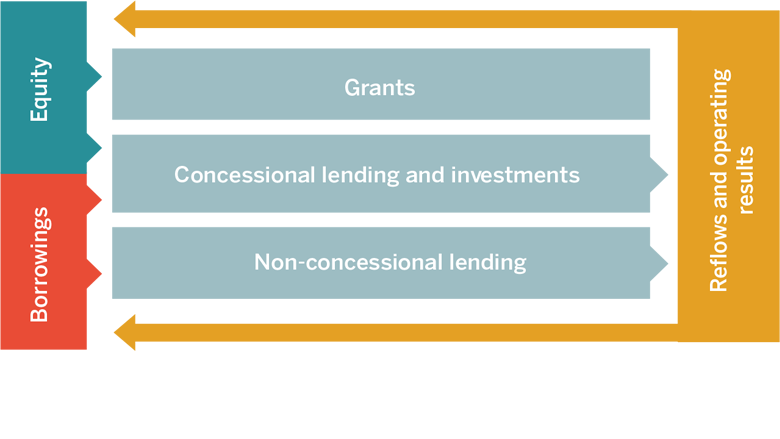The World Bank Group has a systematic, evidence-based model for providing financial, analytical, and advisory services, focusing on strong country ownership and good development outcomes. This engagement model rests on several mechanisms, which include the Country Partnership Framework and Systematic Country Diagnostics.
The Country Partnership Framework guides the Bank Group’s support to a country over a four- to six-year period while retaining flexibility amid rapidly changing global and national circumstances. It is the central tool for management and the Board when reviewing and guiding our country programs. The Bank, IFC, and MIGA jointly prepare and implement these frameworks by:
- Taking into account the country’s development goals.
- Drawing on the Systematic Country Diagnostic, prepared in close consultation with national authorities, the private sector, and other stakeholders. These diagnostics look at a range of issues and seek to identify barriers to and/or opportunities for sustainable poverty reduction and shared prosperity.
- Considering the Bank Group’s comparative advantage, lessons learned, and other partners’ activities.
- Aligning with the Bank Group’s goals and the Bank’s commitments from our 2018 capital increase and the IDA20 replenishment.
In fiscal 2023, we fully implemented the revised Country Engagement Guidance and Procedure. This guidance aims to enhance outcome orientation by integrating high-level outcomes in results frameworks and articulating how the Bank Group program contributes to these. High-level outcomes are expected to be achieved over multiple Country Partnership Framework cycles—consistent with a country’s development goals. Following a deferral period, gradually phased out in fiscal 2022, at the onset of the COVID-19 pandemic, we resumed the preparation of country engagement products. We delivered 11 Systematic Country Diagnostics, 25 Country Partnership Frameworks, 14 Performance and Learning Reviews, and two Country Engagement Notes in fiscal 2023.
In July 2022, we published the Global Crisis Response Framework, which outlined and guided the Bank’s operational response over the 15-month period from April 2022 to June 2023. Through this framework, we aimed to address short-term shocks to improve prospects for sustainable development while fostering long-term resilience to help prepare for future shocks. It rests on four interconnected pillars that combine support to crisis response and long-term goals.
- Pillar 1: Responding to food insecurity through immediate crisis response to provide urgent support and avoid long-term derailment of development prospects.
- Pillar 2: Protecting people and preserving jobs to help mitigate the medium- to long-term impact of crises.
- Pillar 3: Strengthening resilience to be better prepared for any future crises and challenges.
- Pillar 4: Strengthening policies, institutions, and investments for rebuilding better to utilize the opportunities the crises provide to improve long-term development outcomes.
We offer countries a tailored approach to their crisis response. Our global, regional, and country analytical and advisory products are critical complements to our financing portfolio, helping deliver evidence-based policies and financing operations to maximize impact at the country level.
Between April 2022 and June 2023, the World Bank approved 529 standalone and regional operations covering more than 110 countries across the four pillars of the framework, totaling $104.9 billion, including $53.1 billion under IBRD and $51.8 billion under IDA. Of the total amount, $23.7 billion was committed for countries affected by fragility, conflict, and violence, and $2.0 billion for small states.
